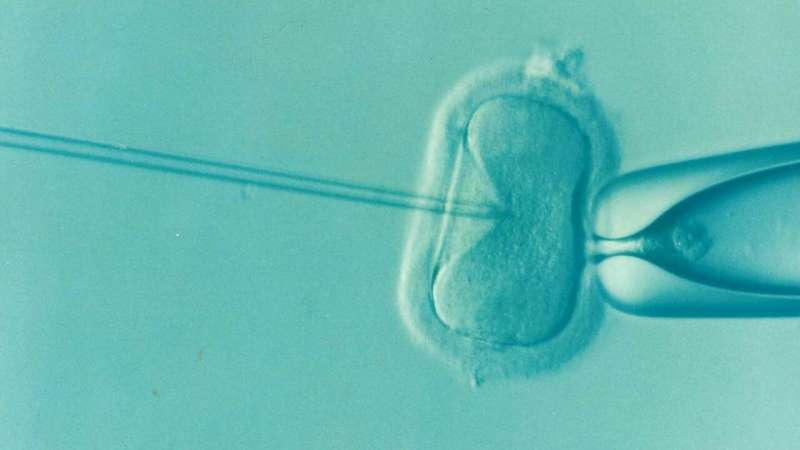Chromosomal aberrations created during in vitro fertilization do not endanger future babies

The process of in vitro fertilization (IVF) is often unsuccessful due to chromosomal changes that occur in an embryo fertilized in a test tube. So far, it was not known whether these changes also transfer to the baby, but an article published in Nature Medicine shows that these genetically mutated cell lines are not inherited by the child.
Compared to within the mother's body, an egg fertilized in a test tube undergoes different conditions for growth. "As these conditions are not consistent with those the embryo in a woman's organism has, this creates a situation where chromosomal changes occur in the embryo quite often, referred as embryo mosaicism," said Dr. Andres Salumets, a professor of reproductive medicine at the University of Tartu and Head of the Competence Centre on Health Technologies.
After fertilization, the fertilized oocyte or a zygote starts to rapidly develop, which generates many genetic abnormalities in some or all embryonal cells. These errors are caused by a process known as chromosomal instability. When the IVF embryo is transferred to the mother's body, it is often mosaic—i.e., simultaneously containing chromosomally normal as well as abnormal cells. Prior studies have shown that similar mosaicism may also occur in naturally conceived children, though it is very likely the mosaicism of IVF embryos is more common. This has given rise to hot discussions, for example, "Could it pose a genetic risk to the unborn child?"
"Even when using very sensitive methods, we could not see any cell lines with chromosomal aberrations in IVF children. Thus, our study shows that in vitro fertilization does not pose any health risks to children to be born," explained professor Salumets.
In addition to the knowledge of geneticists, this kind of interdisciplinary study required cooperation with infertility clinicians, clinical embryologists and bioinformaticians. The current study was made possible via an advanced computational method, called haplarithmisis. This method enabled researchers to dissect the cellular composition of placenta and estimate the maternal and foetal compartments of the placenta, allowing identification of mosaic genetic imbalances in unprecedented detail in both the child's own genome and the placental tissue.
Scientists then observed the live-born children. "The implications of chromosomal instability in difficult pregnancies are still to be studied, including preeclampsia and small-for-gestational age children that are caused by placenta malfunction," said Dr. Salumets.
More information: Masoud Zamani Esteki et al, In vitro fertilization does not increase the incidence of de novo copy number alterations in fetal and placental lineages, Nature Medicine (2019). DOI: 10.1038/s41591-019-0620-2

















